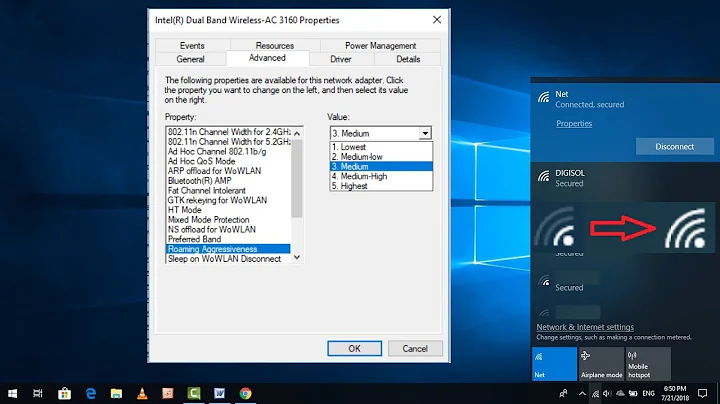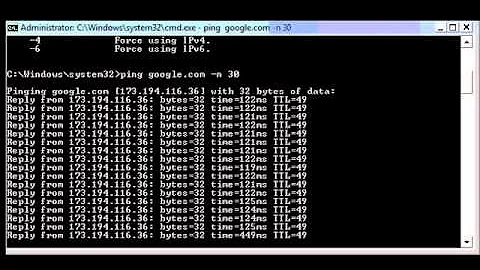What's the normal latency for a Wi-Fi connection?
You're not measuring latency. You're measuring the time to send 65,500 bytes twice.
Let's say your wireless connection has a useful transfer rate of 18Mbps. That's a pretty realistic rate.
To send 65,500 bytes twice would require sending 65,500 X 8 X 2 bits, or 1,048,000 bits. At 18Mbps that would take 1,048,000 / 18,000,000 seconds or 58 milliseconds.
That's about the same as the average that you measured. And you noticed that my calculations didn't have anything to do with latency.
Related videos on Youtube
computationalprince
Updated on September 18, 2022Comments
-
computationalprince over 1 year
Playing an online game connected to a server with 64 players and an avg. ping of 50 I get quite a bit of lag. So while being connected to the server, I ran a "cmd.exe && /c ping 192.168.0.1 -l 65500 -t" for a minute and got a result of 43ms(avg.), 28ms(min), 89(max). Notice that "65500" is the packet size to be sent in bytes which is the maximum the Ping command can send. This behaviour is obviously reasonable, because my router sits on a table through a wall, giving an avg. of -50dB signal while being near to 10-15 other Wi-Fi's and due to that, sometimes I experience big spikes. So, does this mean that my overall avg. latency is about twice as more as my avg. latency with the game server and is completely normal considering all the inconvenience caused by the neighboring Wi-Fi's?
-
 LPChip almost 6 yearsGaming while using WiFi never is a good idea.
LPChip almost 6 yearsGaming while using WiFi never is a good idea. -
Daniel B almost 6 yearsOn a regular Ethernet network, the maximum packet size is 1500 bytes. That means your ping packet is fragmented into at least 43 packets, resulting in additional latency. This test is meaningless.
-
 Mokubai almost 6 yearsWiFi is subject to interference from microwave ovens, cordless phone, Bluetooth devices, "wireless" devices, sunspots and a thousand other things as well as other WiFi networks and devices. Unless you live in an anechoic chamber then you cannot be sure of a consistent latency.
Mokubai almost 6 yearsWiFi is subject to interference from microwave ovens, cordless phone, Bluetooth devices, "wireless" devices, sunspots and a thousand other things as well as other WiFi networks and devices. Unless you live in an anechoic chamber then you cannot be sure of a consistent latency.
-




